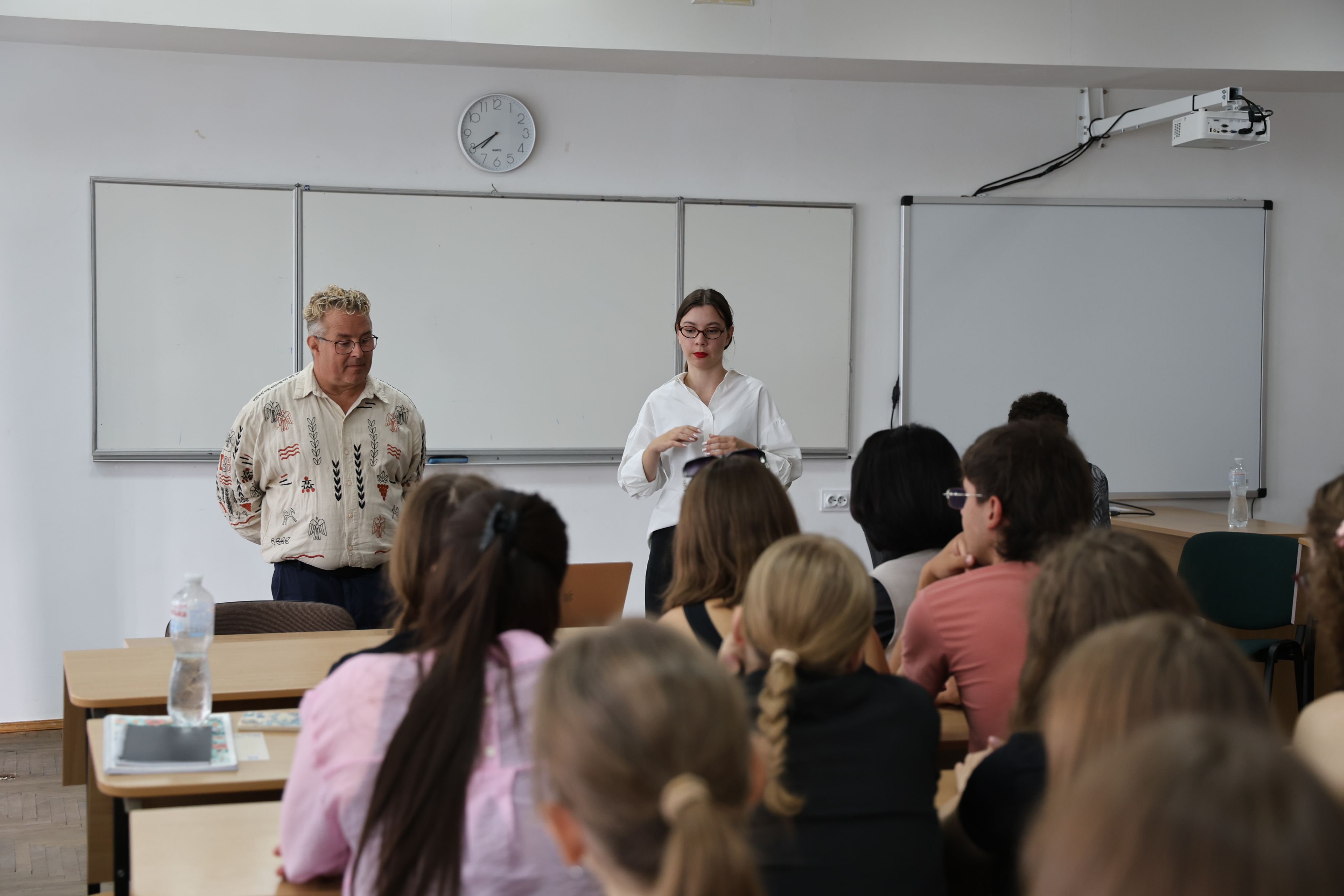On September 9, 2025, the Danish journalist and Head of “Re:Cover Ukraine: A Peer-to-Peer Journalism” Morten Hansen visited Lesya Ukrainka Volyn National University with a speech.
Before the lecture, the media person met with Rector Anatolii Tsos to discuss the possibilities of cooperation and sign a memorandum.
Among the listeners were Vice-Rector Nataliia Blahovirna and Head of Department of Social Communications Olena Koshelyuk, member of the Supervisory Board of RE:Cover – Peer-to-Peer Journalism Project Olga Virsta, Morten Hansen’s colleague, the Danish investigative journalist Siri Franceska, and the students.
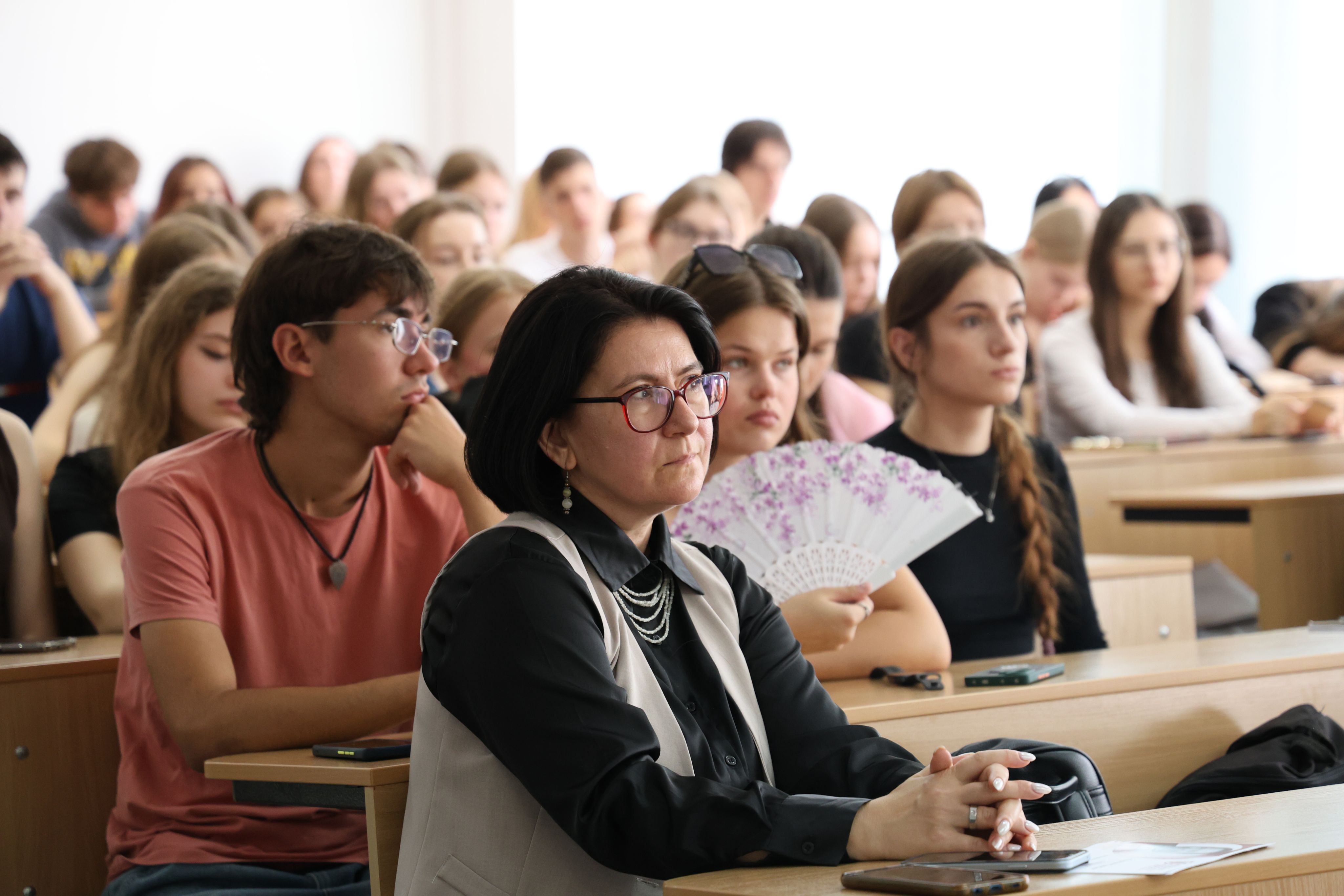
The conversation dedicated to media trends in Denmark started with a question to the audience: “What is journalism?” Not only those studying journalism joined the response, but also the students of other specialties: Philology and International Law. Morten himself defines journalism not by meaning, but by purpose.
“Its purpose is to inform citizens, give them a basis for acting as citizens of independent countries. So, this is journalism, at least in Denmark. Perhaps it is the same as in most other democratic European countries, in particular in Ukraine,” he believes.
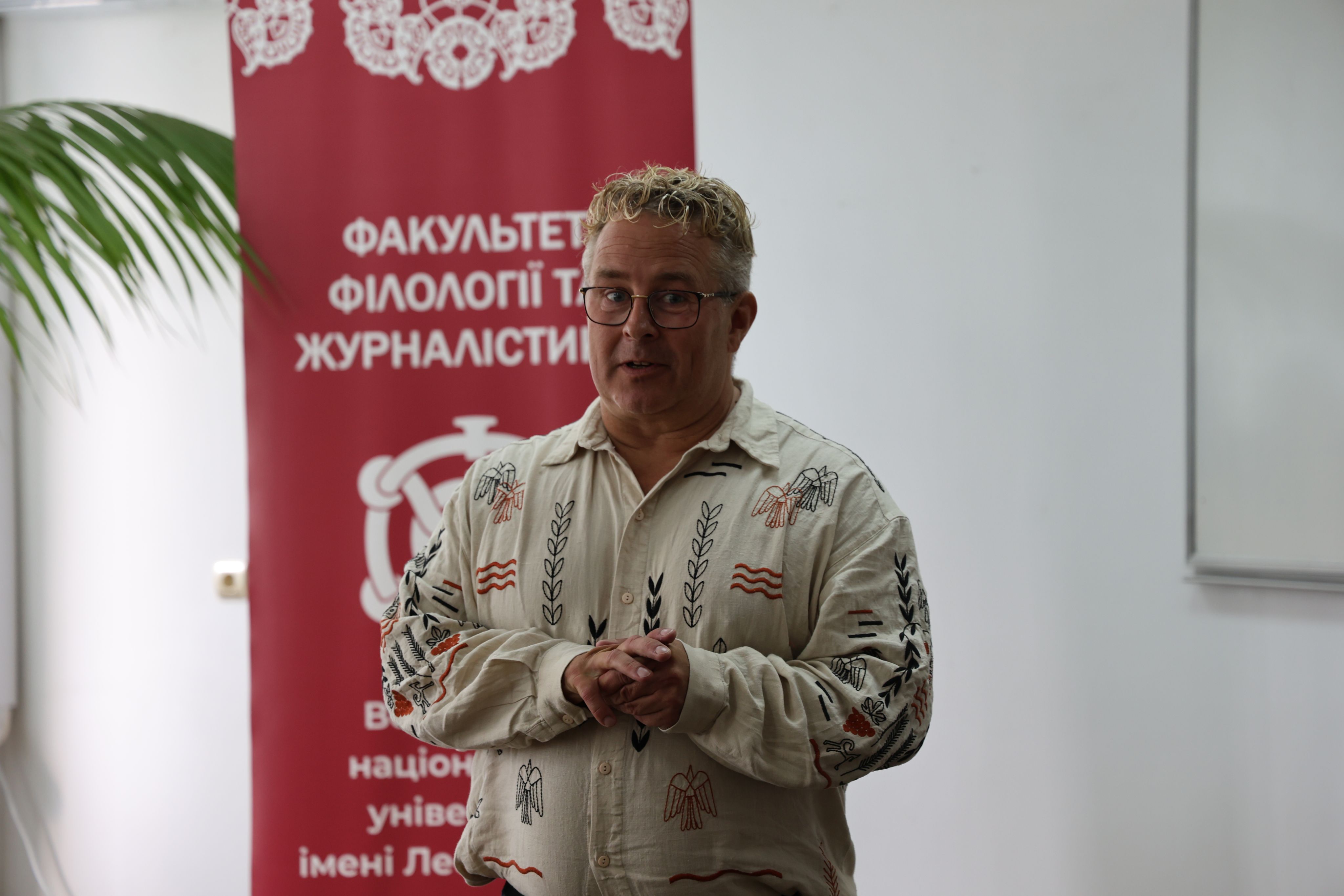
Morten added that journalism in Denmark is self-regulated, that is, not subject to political forces, but having its own media government. This preserves its independence, which, in turn, opens up opportunities for effective journalistic investigations. He emphasized that there is a certain difference between ordinary and investigative journalism.
“When we transmit information about what is happening around us, and the information finds us, then this is ordinary journalism. And when a journalist forms a request for oneself about a topic considered important, and there is no available information about it, then the investigation begins,” Morten concluded.
He mentioned the work of the American journalist David Kepler, who provided a definition of investigative journalism in his book “Global Investigative Journalism”. It is that this direction of journalism is systematic, which digs deep, to the essence of the matter and tells about what was previously hidden.
Finally, Morten Hansen shared tips for working in investigative journalism. He emphasized that it is important to value time as a resource, always look for reasons and protect the information you are working on. After the event, the students additionally talked with Morten and thanked him for the interesting lecture.
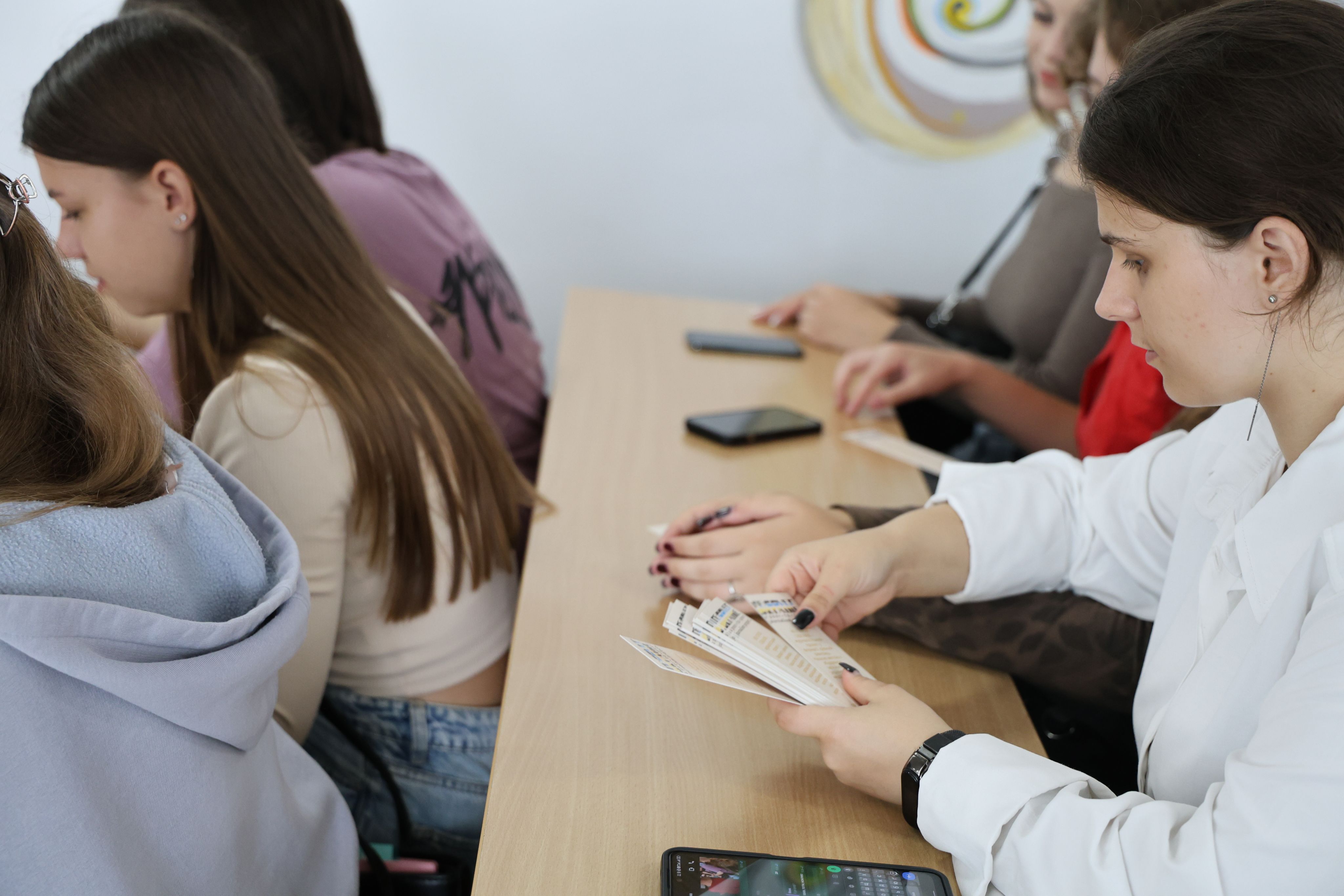
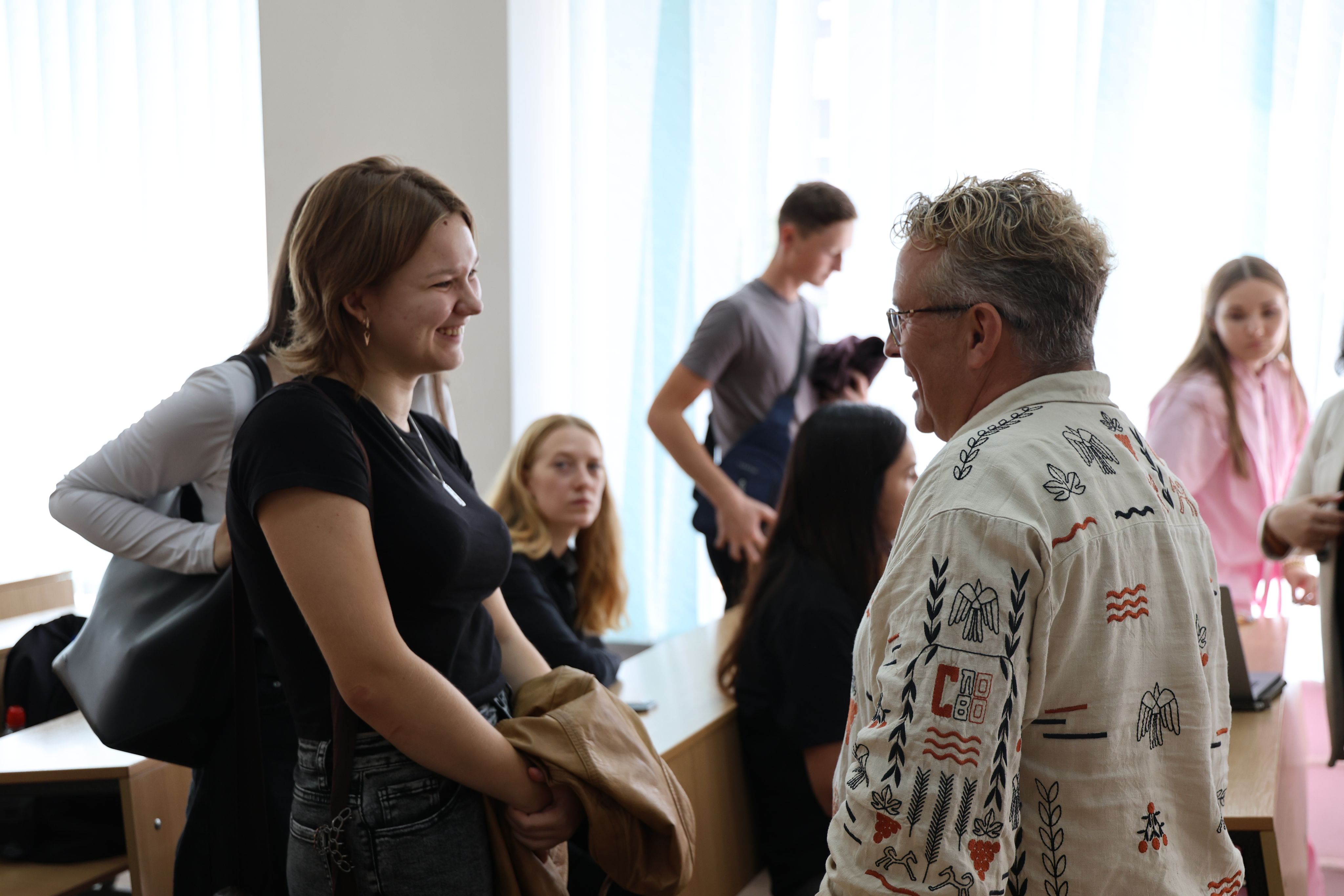
Translation during the meeting was provided by first-year Master's students in the specialty “Interpretation” Kateryna Severyanova and Artem Kozar within the framework of the work of the Multimedia Translation Laboratory.
As a reminder, Rector of Lesya Ukrainka Volyn National University, Anatolii Tsos, the Danish journalist and Chairman of the “RE:Cover Ukraine” Organisation Board Morten Hansen signed a cooperation agreement.
The main goal is to support the sustainable development of journalism and independent media in Ukraine, in particular, regional ones. The parties also agreed to work together to jointly organise educational programmes, involve the students and lecturers in media projects, public interest journalism, and cross-border initiatives.
Information Policy Office
